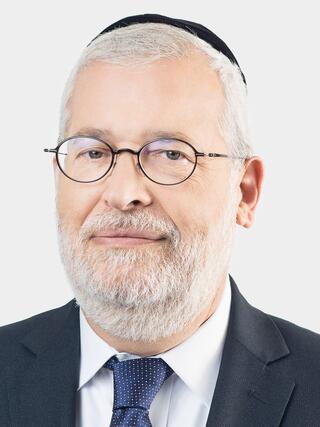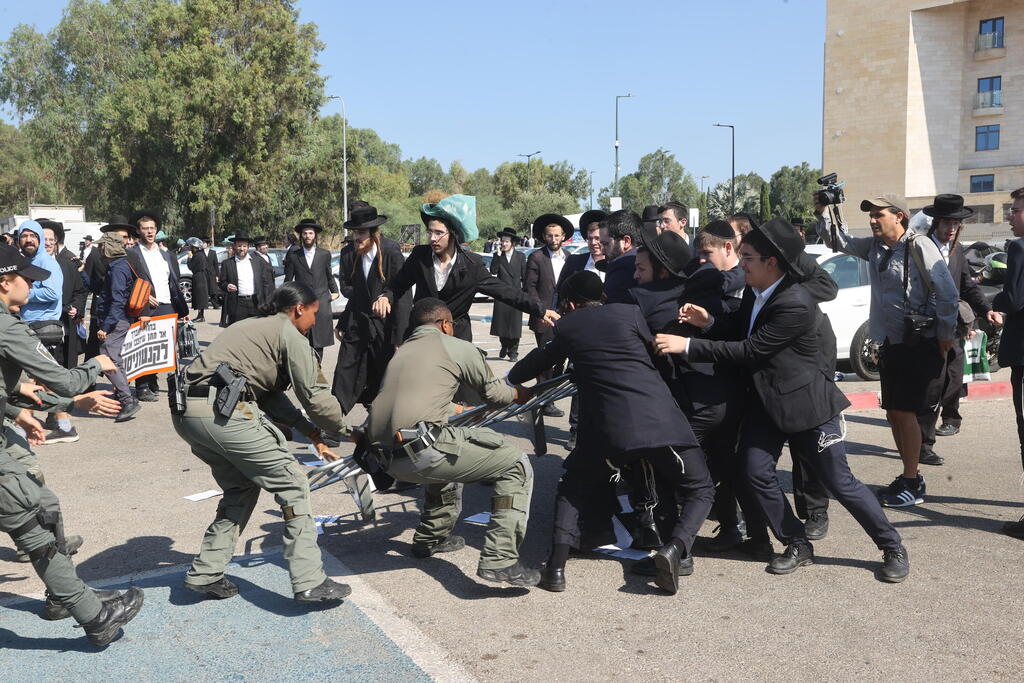Getting your Trinity Audio player ready...
As if nothing had changed, and as if Israel had not been caught in a 10-month nightmare, it seems that public discourse and political debate concerning ultra-Orthodox enlistment for military service continues to be conducted as it was before October 7.
In recent years, we have become accustomed to dealing with significant but narrow-minded questions of "equality" and "fulfilling goals" or quotas. In my view, the Supreme Court also erred and missed a historic opportunity when it chose to deal with the same issues. If drafting ultra-Orthodox youth could have ever been resolved through legislation and courts, it would have happened a long time ago.
Instead of these pointless issues, we must deal with the broad and critical question of the ultra-Orthodox community's participation in Israel's security challenges, and in the future of our national existence in Israel, while maintaining the most important value – studying the Torah.
If we try to examine the role of the ultra-Orthodox community only in the light of security or economic responsibility, while ignoring the ability to harness its critical contribution to the continuation of the future of the Jewish people and Jewish tradition, this will damage national resilience.
Allowed to feel safe
We must remember that a country that sees itself as "Jewish and democratic" and speaks highly of "equal opportunities," should – and is even required to – allow all its citizens who wish to take part in its security challenges to maintain their cultural needs. That is, to allow them to feel confident that their lifestyles will be preserved, without fear of harming their religious affinity and the nature of their lifestyle as a consequence of their sacrifice for the state's security during war.
There is no disputing that Israel's security needs have changed since October 7, leading the country to adopt many insights. One major takeaway is that the country needs more people in security and emergency services. Meanwhile, the Haredi population is increasing, which raises the question of the communities' role and responsibility for Israel's security and existence.
The ultra-Orthodox public is not our weakness and can certainly be a source of national resilience. The State of Israel of 2024 is strong enough to accept the principle of diversity as a central part of Israeli culture and current national identity. The ultra-Orthodox man is also Israeli. Maybe not Zionist, but Israeli. He is an Israeli who is part of the country, shares in the responsibility for its fate and shares in the fear of threats. He is an Israeli because he feels a deep connection with the people living in Zion and with his brethren in the Diaspora.
At the same time, he is ultra-Orthodox in his religious outlook, appearance and lifestyle. He is ultra-Orthodox also in the sense that he carries with him the optimistic view that there is hope for the future. He is busy not only basing himself in the present but also heroically preserving the past while eyeing the future. These are essential necessities for our prosperity here as a nation that relies on solid foundations, such as Jewish tradition.
Those living among the Haredi community witness a diversity of thought, with many good people addressing critical issues with greater determination than is seen in the government, media and Knesset.
 Eli PaleyPhoto: Nir Slakman
Eli PaleyPhoto: Nir SlakmanThis reality has resonated deeply since the disaster of October 7 and can change the face of Israeli society and allow cultural minorities to live according to their way of life on the one hand and to be partners in national security challenges on the other. They will be able to do this on the home front, in the emergency services, in civil society organizations, in the defense industries, in the technological units, in cyber warfare and more.
This will no longer be a voluntary integration, but a significant part of the state's ability to operate, train and prepare for security emergencies. A move of this type will not only contribute to strengthening the security resilience of the State of Israel but will also make a significant contribution to the national effort to bridge the divide, mend existing rifts and find a common language within a country that has gradually split into tribes.
Those who are looking to fight will surely find a convenient reason every day and at every hour. Those who want to shore up national security and resilience must see this as a crucial hour to cooperate instead of clashing and to look for solutions and a common path together.
- Eli Paley is the chairman of the Ultra-Orthodox Institute for Policy Studies.


